In pictures: Personal accounts of WW1 to be digitised
- Published
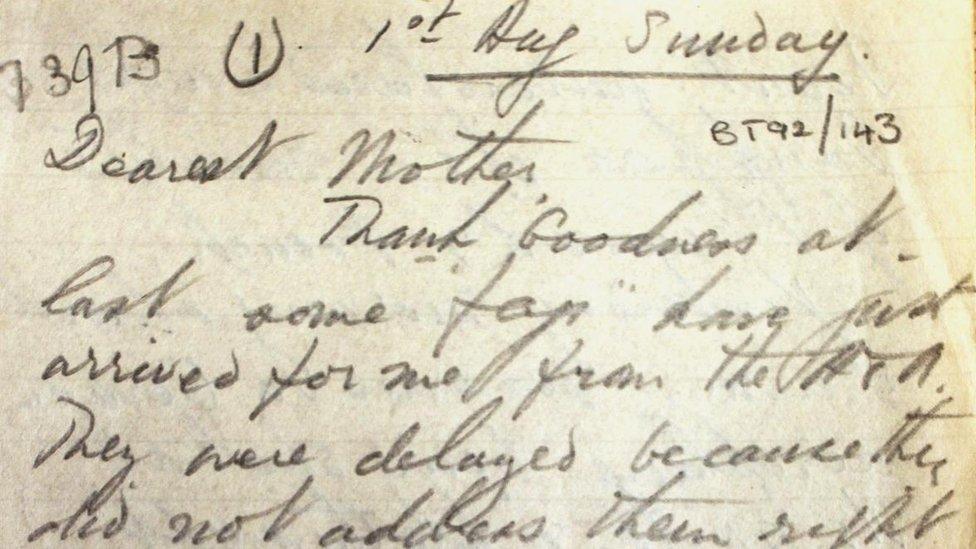
Personal letters, diaries and photographs from World War One are being digitised and made available online for the first time. One letter home from the front line reads: "Thank you very much for the lovely parcel. The cake is top hole, the best I've tasted since I've been out. An awful tragedy happened this morning. The men's dugout collapsed and Capt Higginson was buried alive and crushed to death."
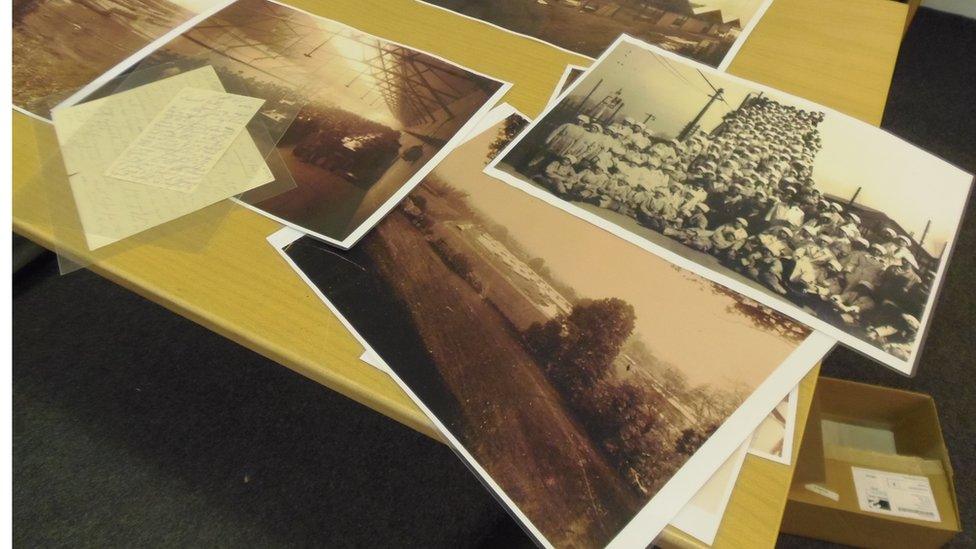
Photographs and hand-written papers will be scanned before being catalogued online. Letters and diaries will also be transcribed by volunteers. Larger items, such as newspapers, will be photographed by a special camera mounted on a cradle directly above the document.
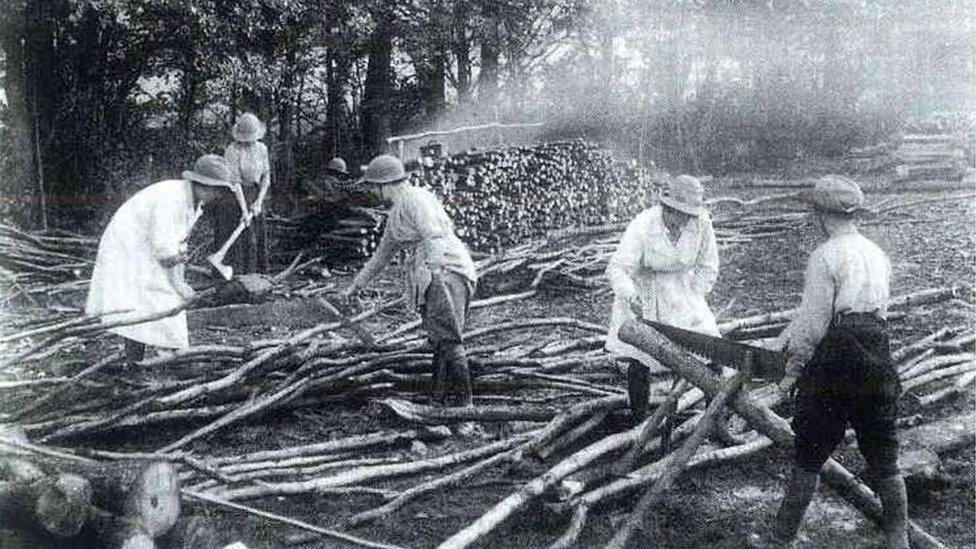
The project, carried out by Herefordshire archivists, library workers and volunteers, focuses on stories of everyday life in the county throughout the conflict. People will be able to have their own memorabilia included by taking items to a series of exhibitions and talks to be held next year.
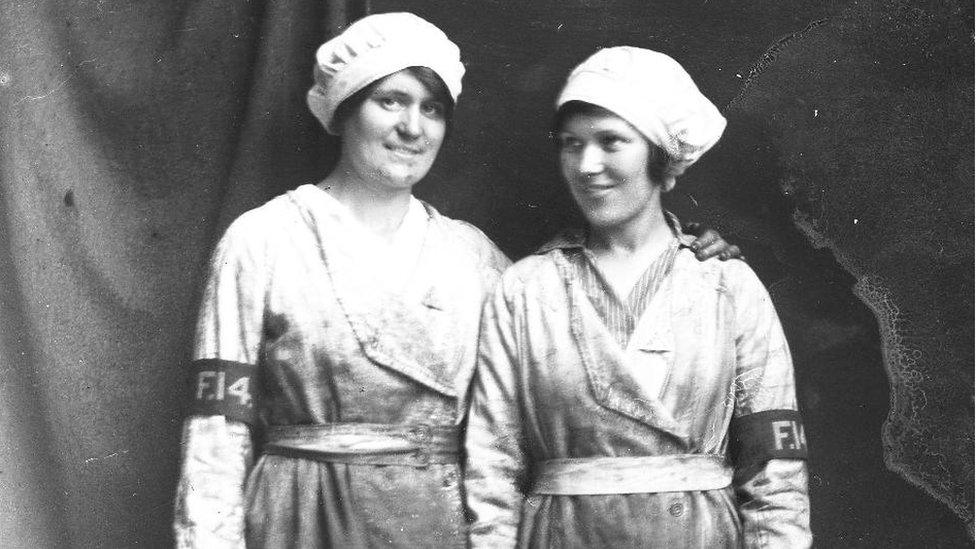
"Herefordshire in the Great War: telling the story 1914-18" will need volunteers next year to collect letters, photographs and diaries currently dispersed across the county. Local history groups are already helping by researching their own towns and villages.
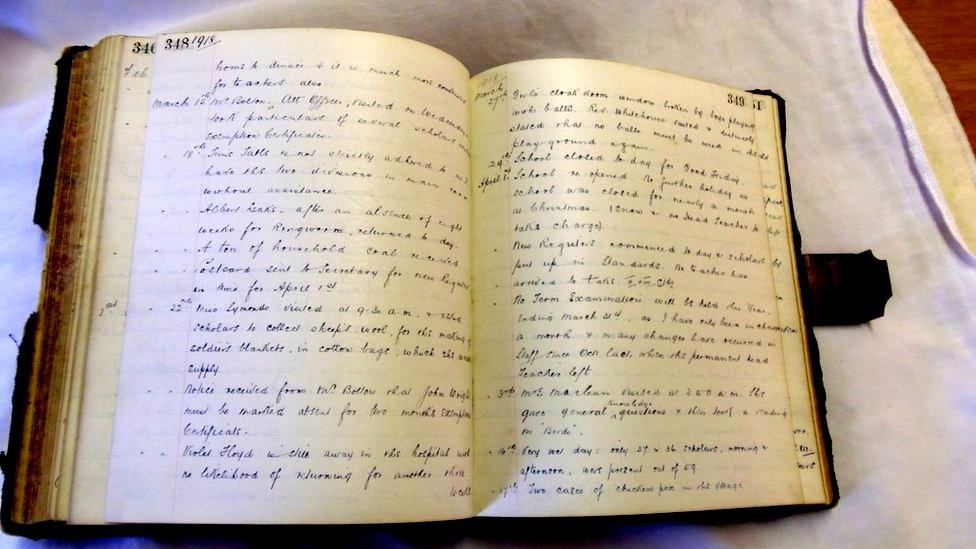
The senior librarian of the project, Jan Nesaratnam, says the project continues to grow as more documents are discovered every day. A school journal records that pupils were asked to collect sheep's wool to make blankets for soldiers on the front line.
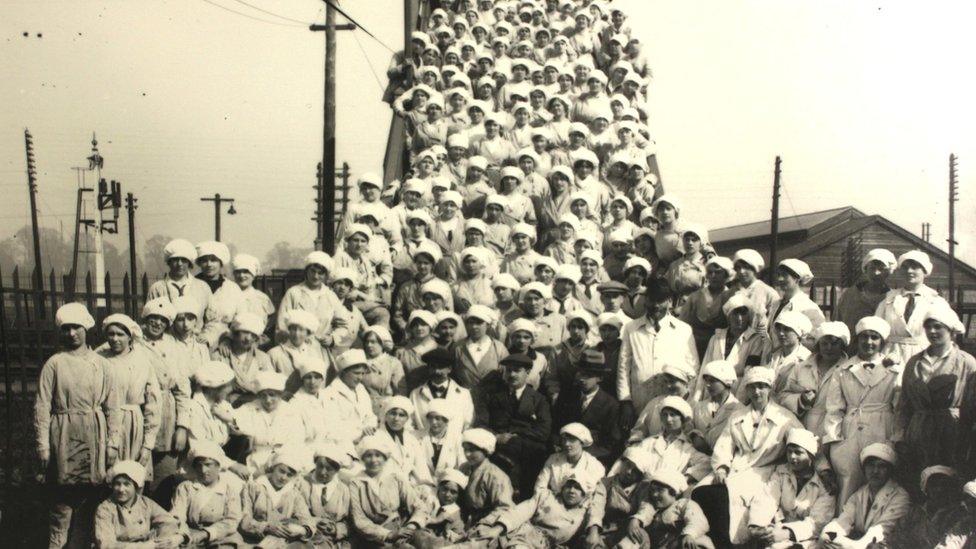
Women came from all over the country to work in the munitions factory at Rotherwas in Hereford. They became known as "the canary girls" because their skin turned yellow from handling the gunpowder at the plant.
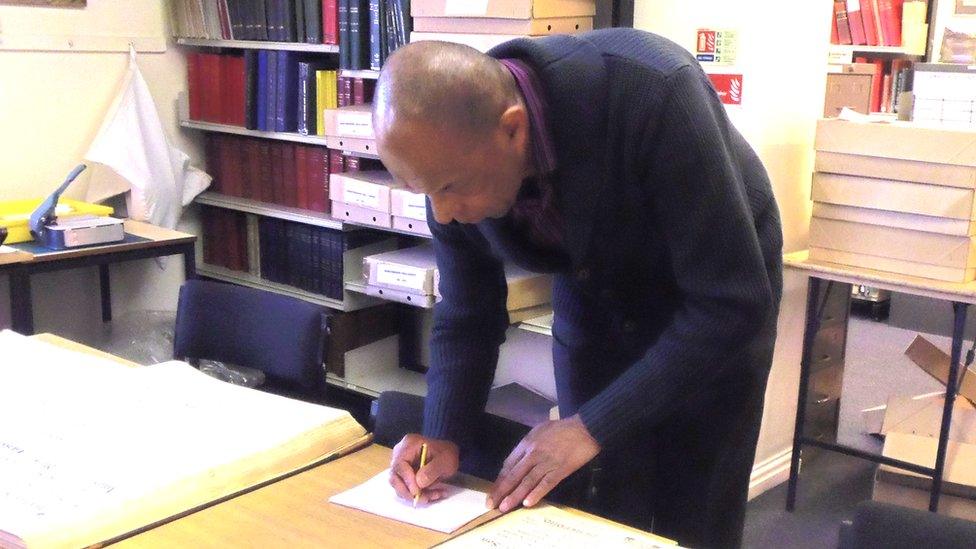
Stuart Dove's mother was a Belgian refugee who remained in Herefordshire after World War One. Mr Dove is now a volunteer researcher, going through the archives of local newspaper The Hereford Times to find any references to those refugees. He works on the project for five hours every week and says he finds it especially interesting because of his personal link.
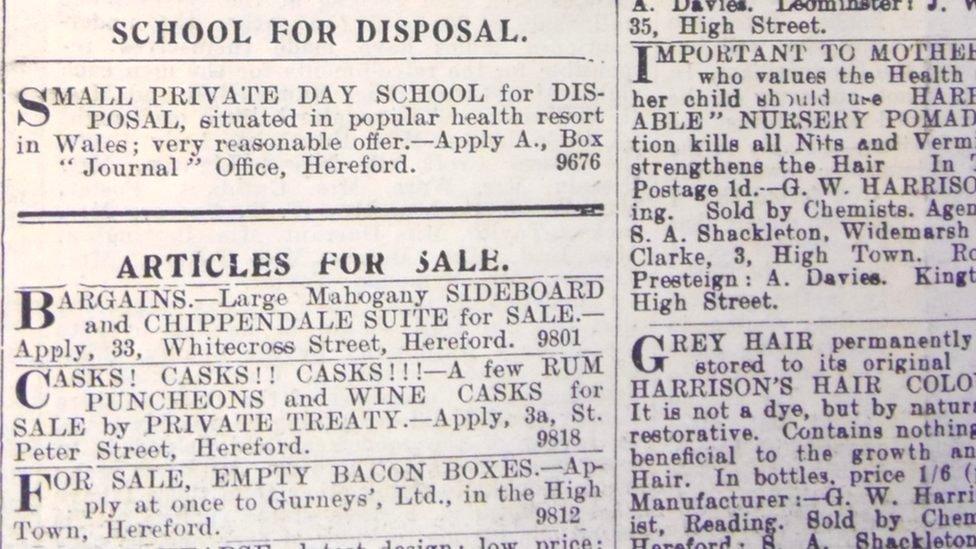
Many newspapers in the Herefordshire collection are too frail to be used, so identical copies held in the British Library will be photographed instead. Archive copies of The Hereford Times show war reports were published alongside adverts for hair dye, pianos, empty bacon boxes and even a school.
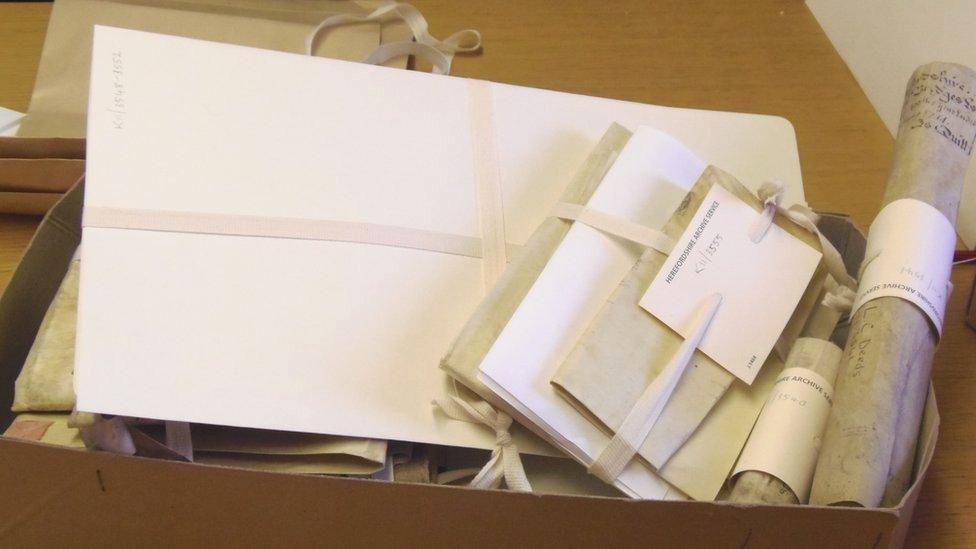
The first stage of the project, organising the archives of local newspapers, is underway. The next stage - collecting personal memorabilia - will begin in spring 2014. The work, partly funded by a £69,100 grant from Heritage Lottery Fund, is expected to continue for another two years.
- Published29 August 2013
- Published27 July 2013
- Published10 June 2013